PI Spotlight Series
Meet some of the scientists working to advance understanding of climate‐related impacts on fisheries and fishing communities to inform sustainable resource management as part of the Climate and Fisheries Adaptation (CAFA) Program. We asked some of the 2020 PIs:
- What inspired you to pursue a career in fisheries science?
- What advice do you have for students interested in pursuing a career in your field?
- What is your background and interests outside of work?
Click on the links below to learn what they had to say.
Dr. Lorenzo Ciannelli
Professor of Fisheries Oceanography at Oregon State University in the College of Earth, Ocean, and Atmospheric Sciences
Professor of Fisheries Oceanography at Oregon State University in the College of Earth, Ocean, and Atmospheric Sciences
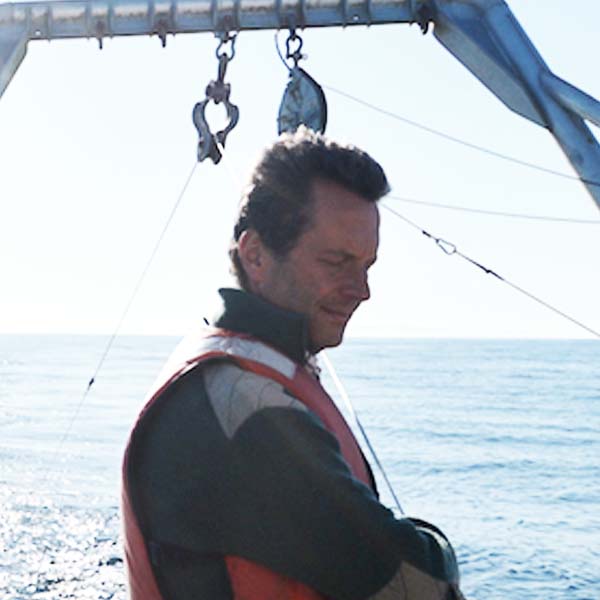

Project: Physiology, climate change, and the ecosystem approach to fishery management in Northeastern Pacific ecosystems
Year: 2020
Can you tell us about your project and what you hope to accomplish?
This project is a unique opportunity to understand how changing ocean conditions, fishing effort, and prey quality affect the abundance of commercially exploited species in the California Current marine ecosystem. With this study I also hope to further develop an existing modeling framework (ECOTRAN) in ways that can incorporate changing ocean conditions, and be applied to other systems or species. Last but not least, I am excited about the opportunity to engage with colleagues, students, post-docs, who work on similar issues in the east and west coast, and to learn from their projects.
What drew you to your current field of study?
I was born and raised on a small island in south Italy, Ischia, where I lived in proximity to the ocean and to fishermen. Connecting with artisanal fishermen, I experienced first hand the variability of commercial catches, and I have been motivated to understand what drives it.
What is a rewarding aspect of the work you do?
Working with students.
What ways do you think we could engage/interest more people in this field or in science in general?
Stories and narratives like this, about not only the science, but also the people behind it, make the process of doing science more ‘human’, and can hopefully attract more people to it. Outreaching to schools, and talking about the wonderful things of the ocean, such as the currents, the fish, the ice, the eggs, the larvae, the microbes, not only the challenges that oceans face, is also a way to attract more people to it.
What advice would you give to someone interested in pursuing a similar field of study?
Go for it! It is a lot of fun, and is worth it.
What do you like to do outside of your research interests?
Spend time with my family, travel, cook, eat, swim.
Dr. Anne Hollowed
Senior Scientist with the NOAA Fisheries Alaska Fisheries Science Center
Senior Scientist with the NOAA Fisheries Alaska Fisheries Science Center
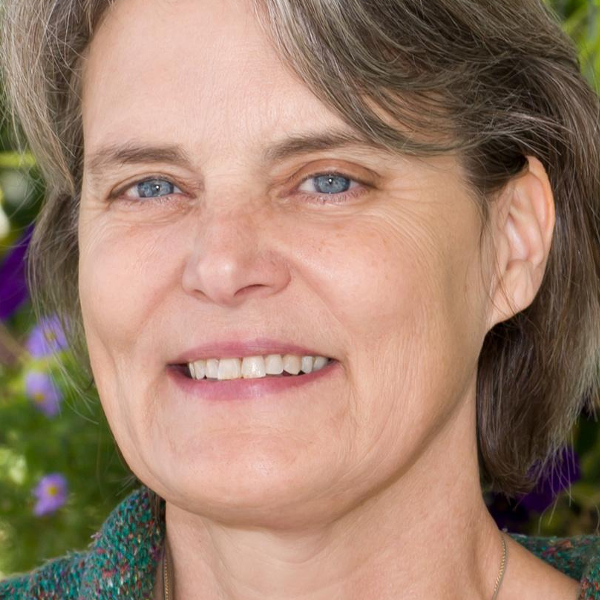

Project:Alaska Climate Integrated Modeling Project (ACLIM)
Year: 2020
Can you tell us about your work in the ACLIM project and what you hope to accomplish?
The Alaska Climate Integrated Modeling project is an interdisciplinary research project targeted at understanding the implications of climate change on marine ecosystems in the Bering Sea. The project integrates downscaled ocean model projections with social-ecological models to assess the performance of current and alternative management strategies. The project represents a research partnership between the University of Washington’s School of Aquatic and Fishery Sciences, NOAA Fisheries, NOAA’s Oceanic and Atmospheric Research Climate Program Office, and the North Pacific Fishery Management Council.
What drew you to your current field of study?
Concerns about the implications of climate change on living marine resources.
What is a rewarding aspect of the work you do?
The research is designed to provide the science needed to inform decision makers of the implications of different management strategies with respect to the National Standards of the Fisheries Management and Conservation Act.
What ways do you think we could engage/interest more people in this field or in science in general?
Large interdisciplinary research projects like ACLIM provide a forum for community engagement. The products of these projects inform decision makers, the international research community and the public of the implications of climate change on the world’s oceans.
What advice would you give to someone interested in pursuing a similar field of study?
Engage in interdisciplinary research early in your career.
What do you like to do outside of your research interests?
Visiting my children and grandchildren, and generally enjoying nature.
Dr. Lisa Kerr
Senior Research Scientist in Fisheries Science at the Gulf of Maine Research Institute
Senior Research Scientist in Fisheries Science at the Gulf of Maine Research Institute
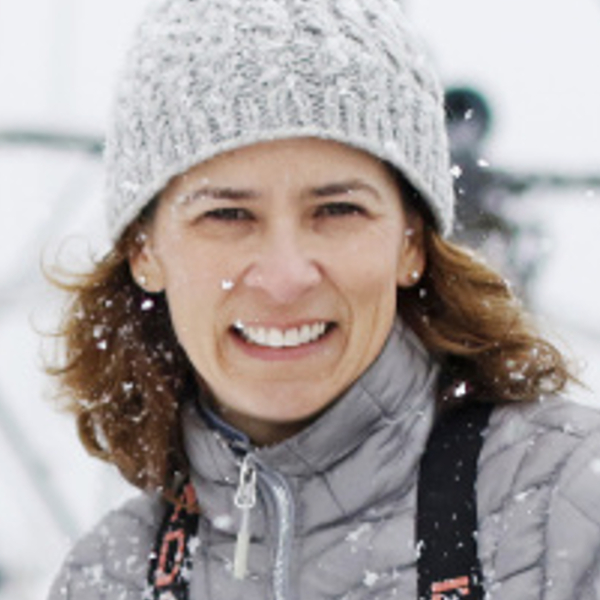

Project: Northeast climate integrated modeling to meet ocean decision challenges
Year: 2020
Can you tell us about your project and what you hope to accomplish?
Over the last forty years, the waters of the Northeast U.S have warmed at an unprecedented rate and this warming has already led to geographic shifts and impacted productivity of economically and culturally important fish stocks. Due to the rapid pace of change in the region, there is a critical need to develop and apply science, knowledge, and tools that can help support fisheries decision-making. One of the critical questions facing the region is: How do we sustainably harvest our fishery resources as their productivity and distribution changes due to ocean warming? The goal of our NCLIM research is to develop an integrated modeling framework to inform marine resource decision-making under projected climate change in the Northeast U.S. The framework will integrate climate, ocean, population, and human dimensions models and be used to inform fisheries decision challenges for species that have demonstrated shifts in distribution and changes in productivity.
What drew you to your current field of study?
I enjoy the challenge of conducting management strategy evaluation (MSE)-which involves integrating understanding of ecosystem processes and drivers, fish population dynamics, fisheries and their associated economic impacts, and management. MSE also involves working closely with stakeholders to help them realize their vision for their fishery.
What is a rewarding aspect of the work you do?
I enjoy serving as a science advisor and advising on the best available science to support sustainable fisheries management. It is very rewarding to see science contribute to improvements in our fisheries management.
What do you hope the future for women in science looks like?
I hope the future of science is diverse and inclusive with more women in leadership positions.
What message would you like to give to the next generation of scientists?
I would advise the next generation of scientists to think about fusion-working across disciplines (e.g. computer science and fisheries) has great potential to yield new and interesting research directions.
What do you like to do outside of your research interests?
I enjoy hanging out with my kids-3 boys-so there is never a dull moment!
Dr. James Ruzicka
Research Scientist at the Pacific Islands Fisheries Science Center in the Ecosystem Science Division
Research Scientist at the Pacific Islands Fisheries Science Center in the Ecosystem Science Division
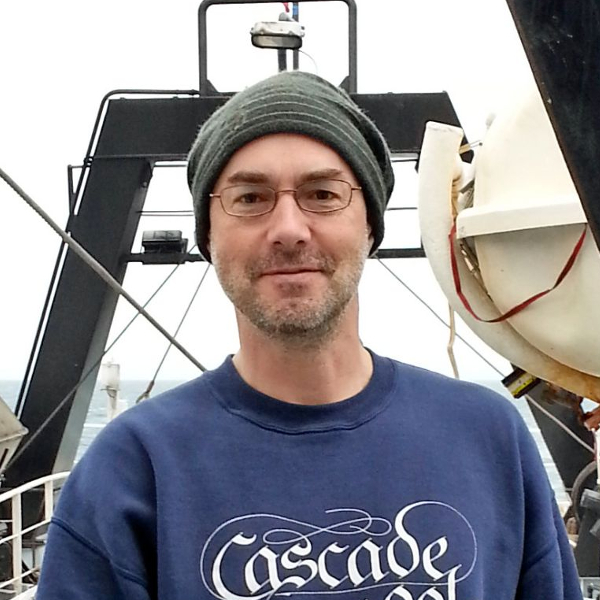

Year: 2020
Can you tell us about your project and what you hope to accomplish?
We are working to improve models that can simulate the entire ecosystem from physics to fisheries. In an incremental process, we are building upon an existing model of the Northern California Current ecosystem off Oregon and Washington to better represent the response of individual living groups to changes in temperature. We are also looking at how changes in the condition of forage, prey animals, affects the productivity of key species like salmon and hake. We will then use the model to simulate how the ecosystem will change under expected climate change conditions and simulate how changes in fishing effort by one fishing fleet will affect other fleets and species.
What drew you to your current field of study?
I like seeing how the different living components of a food web can function together and keep its order indefinitely. I want to know how changes at any part in the food web can affect the rest, and I want to learn how we can manage ecosystems to keep productive and diverse food webs.
What is a rewarding aspect of the work you do?
When I build a computer model, I like to see how I can make a complex program simpler, run faster, and produce more realistic results when compared to observations made in the ocean. I also like going to sea to help collect data on oceanographic cruises.
What ways do you think we could engage/interest more people in this field or in science in general?
People become more engaged with ecological science when we can learn enough about ecosystem behavior to make practical suggestions that are likely to lead to more resilient, biodiverse, and productive ocean communities and sustainable fisheries.
What advice would you give to someone interested in pursuing a similar field of study?
Study statistics, a little computer programming, and math. Study basic physiology and ecology. More specialized skills and knowledge are often best gained practically and cumulatively while working on undergraduate and graduate student projects.
What do you like to do outside of your research interests?
I like mountain trekking and backpacking.
Dr. Marysia Szymkowiak
Research Social Scientist with the Economic and Social Sciences Research Program at the Alaska Fisheries Science Center
Research Social Scientist with the Economic and Social Sciences Research Program at the Alaska Fisheries Science Center
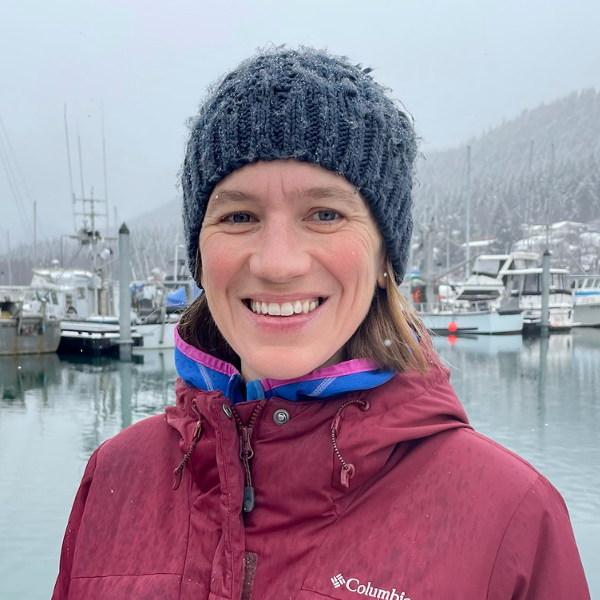

Project: Gulf of Alaska Integrated Modeling Project (GOA-CLIM)
Year: 2020
Can you tell us about your work in the GOA-CLIM project and what you hope to accomplish?
My project is a component of the Gulf of Alaska Climate Integrated Modeling Project (GOA-CLIM), focusing on how fisheries stakeholders and fishing communities will respond to climate change impacts. Through iterative efforts across fishing communities in the Gulf of Alaska, we will examine how participants perceive ecosystem change in their fisheries, how they can respond, and what the impediments to that adaptation may be.
What drew you to your current field of study?
Fisheries are one of the last occupations that we have where humans are totally at the whims of nature. The people that choose to do that for their life’s work are also very unique. The intersection of these two things – man and the sea – in a highly variable and unpredictable environment is fascinating to study.
What is a rewarding aspect of the work you do?
My work allows me to interact a lot with fishermen, who always teach me something new about the marine ecosystem within which I live – the Gulf of Alaska. Fishermen also view fishing as a lifestyle rather than just an occupation, which means they think about their choices more holistically. That also makes trying to understand how policies or environmental changes may affect them much more interesting than if we just assumed everything was an economic choice. For many fishermen, there isn’t much outside of fishing (and often being a certain type of fisherman – species and gear) that they could see themselves doing.
What ways do you think we could engage/interest more people in this field or in science in general?
I think all kids are scientists. They are curious, experimental, unbounded. In a world where the pace of ecosystem change may be faster than the pace of science, we need to think about how to adapt all of our systems – education, science, management, etc. – to be more like our kids, willing to try, to change, and to make big discoveries.
What message would you like to give to the next generation of scientists?
Bring back the Renaissance (Wo)man. In addition to strong training in a given field, learn as much as you can about how other fields and other forms of knowledge think and learn. There is tremendous value to being outside of a given disciplinary box and to understanding how other forms of knowledge take shape.
What do you like to do outside of your research interests?
I have two small kids so much of my world is about making them thrive. When I get a break, I like to run up a mountain in the amazing backyard of Southeast Alaska.
Dr. Desiree Tommasi
Project Scientist at the Southwest Fisheries Science Center in the Fisheries Resources Division
Project Scientist at the Southwest Fisheries Science Center in the Fisheries Resources Division
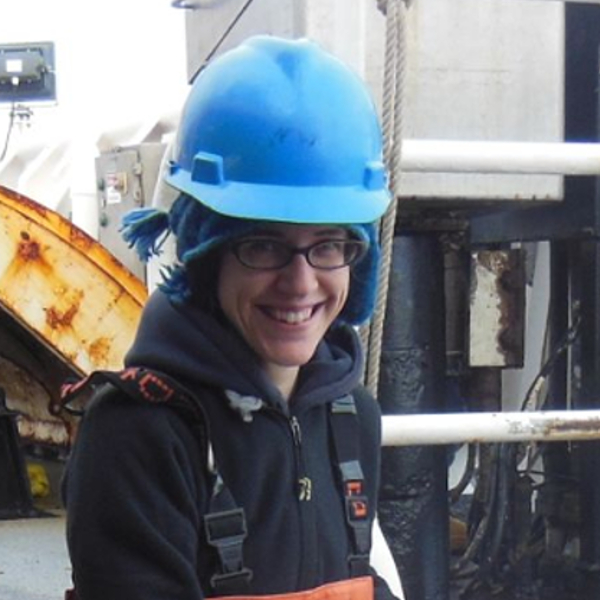

Year: 2020
Can you tell us about your project and what you hope to accomplish?
With climate change ocean conditions are changing, impacting marine species and the fishing communities dependent on them. Our project aims to assess how climate change is affecting the forage fish assemblage along the West Coast of the US. Forage fish, like sardine or anchovy, in their role as prey, transfer energy from plankton to top predators and are key to sustaining healthy marine ecosystems. Using a multidisciplinary approach involving oceanographic, ecosystem, and economic models, our work will quantify how changes in forage fish will affect the fisheries that target them, as well as the protected species, such as sea lions, and commercially important fish species, such as tunas, that depend on them as prey. We will also develop novel management strategies for forage fish and assess their performance in reducing climate change impacts on the forage species assemblage and the ecosystem and fishing communities they sustain.
What drew you to your current field of study?
Some of my fondest memories are of summers spent by the sea growing up in Italy. I’ve always loved to be on the water and knew I wanted to be an oceanographer from an early age. For my master’s and PhD research in Canada, British Columbia, I worked closely with First Nation people researching sockeye salmon and the plankton they feed on. I could see that climate was affecting fish and the people who depend on them and that pushed me to research how to better integrate climate information with fisheries biology to improve how we manage fisheries.
What is a rewarding aspect of the work you do?
Working with a great team of collaborators and interacting with many stakeholders and seeing how engaged they are and willing to share their knowledge to safeguard their fisheries and ecosystem.
What ways do you think we could engage/interest more people in this field or in science in general?
I think people are innately curious and interested in science. In San Diego in particular, where folks often interact with the sea, from going recreational fishing, to going to the dog beach, to the food they eat, people are interested in this field. Scientists could do a better job of engaging with communities and making science more approachable. To enable that the scientific enterprise should reward and facilitate outreach efforts more.
What message would you like to give to the next generation of scientists?
Go out of your bubble, explore, talk to people from different backgrounds. It will inspire you in your work and help develop innovative solutions and approaches.
What do you like to do outside of your research interests?
Playing soccer with my two boys and scouting for the best gelato place in San Diego.


